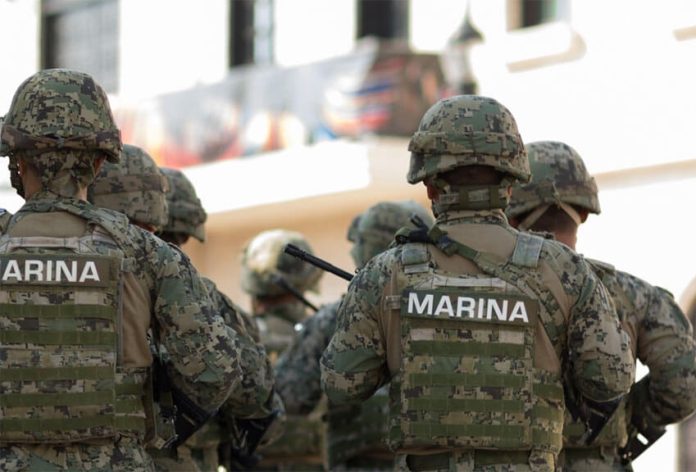Three marines accused of committing acts of sexual torture against two women and one trans man in 2011 have finally been put on trial.
Korina Utrera, Denís Blanco and Charly Hernández were arbitrarily detained by navy personnel in Tabasco on August 27, 2011, according to a press release issued by the Centro Prodh human rights organization.
They were then illegally held at a military facility for more than 30 hours, during which time they were victims of sexual torture, said Centro Prodh, which has worked on the case.
The three victims were accused of being members of the Zetas criminal organization and jailed for over five years until they were absolved and released in November 2016.
Warrants for the arrest of the marines on torture charges were issued last November and they were subsequently taken into custody. They are now on trial in a federal court.

“The beginning of the criminal process is an important step toward the justice that the survivors have sought since they regained their freedom,” Centro Prodh said.
“… We call on the federal judicial power to try [the accused] with a gender perspective and respecting due process,” it said.
The two women were in a relationship and living in Villahermosa when they were abducted from their home by hooded marines, according to a report by the newspaper El País.
They attempted to convince the marines they were not the people they were looking for, but their efforts were to no avail.
Utrera and Blanco, both originally from Veracruz, told El País that the marines’ aggressiveness toward them increased when they found out they were in a same-sex relationship. Their ordeal occurred during the government of former president Felipe Calderón, who launched a militarized war on drug cartels shortly after he took office in late 2006.
Homicides surged during Calderón’s 2006-12 presidency and the National Human Rights Commission (CNDH) received more than 30,000 complaints against security forces for crimes such as torture, arbitrary executions and forced disappearances. Very few cases resulted in criminal punishment for the alleged perpetrators.
According to El País, the physical consequences of the sexual torture suffered by Utrera and Blanco lasted for years. One of the accused marines raped Utrera with his gloved hands in the bed of a pickup truck, causing injuries that were documented years later by the CNDH, the newspaper said.
“All this makes me very cold,” Blanco said, recalling the torture and the years she spent in jail.
When the two women found out that their aggressors had been detained, they felt a mixture of fear and anxiety rather than relief, El País said. Neither has yet received any compensation for the abuse they suffered and their wrongful imprisonment.
While the alleged perpetrators are yet to be convicted and sentenced, Centro Prodh lawyer Melissa Zamora said the arrest of the marines is an important step forward given the high rates of impunity for torture cases.
“But as in other cases,” she added, “only the direct culprits are accused and not the people … in charge of [ensuring] these practices don’t occur.”
With reports from El País
